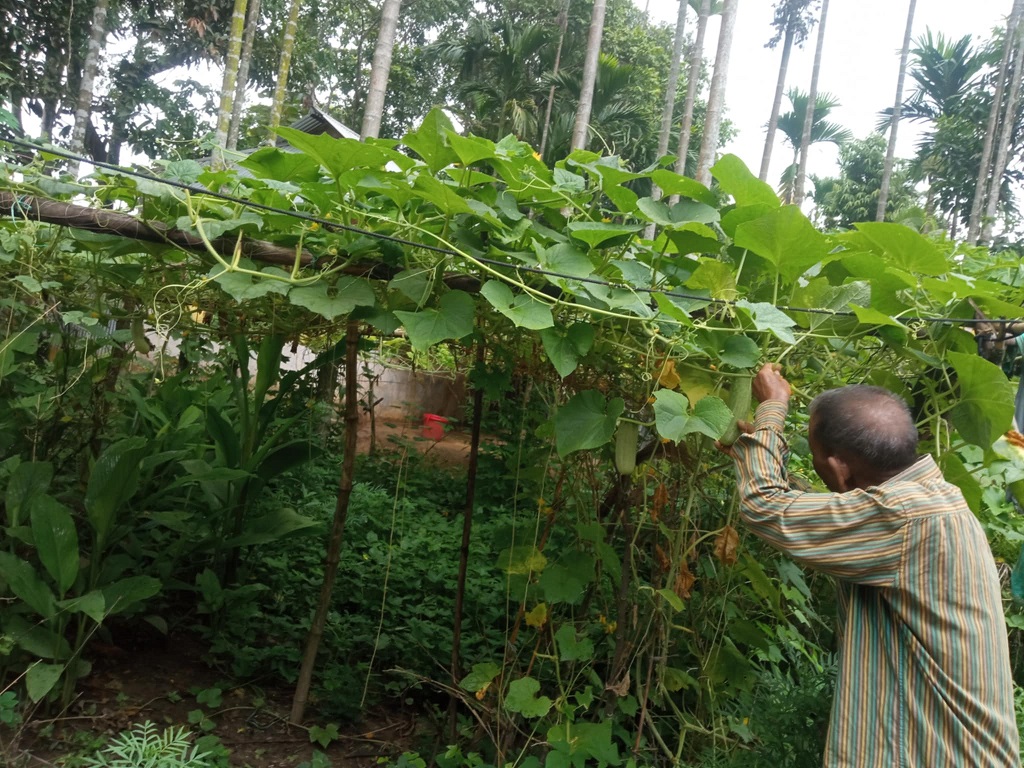By Munna Rongdi, from Kalmakanda, Netrakona
Taranagar is a village in Lengura Union of Kolmakanda Upazila, located near the border in Netrokona. Around 300 families live here, including 65 Garo indigenous people. While the Garo people follow Christianity and have a matrilineal social structure, men also play an active role in household decision-making. Though agriculture has long been their primary occupation, in recent times many have joined government and private jobs or companies.
The Garo community traditionally prefers neat and open surroundings, often avoiding vegetable cultivation around their homes, considering it to diminish beauty. Instead, they used to plant only ornamental flowers.

Since 2012, through BARCIK’s meetings, training sessions, and various activities, the Garo community of Taranagar gradually became aware of the environmental and nutritional benefits of homestead vegetable gardening. Women, particularly under the leadership of the local women’s group Mikraka, played a pioneering role in this regard.
Sabina Rongdi, president of Mikraka, said, “Growing vegetables in our yards does not ruin the beauty; rather, it enhances it, ensures safe food, and helps us save money.”
Jonindra Nokrek, a local farmer, was inspired to grow a variety of vegetables after attending BARCIK’s agricultural training programs saying, “I have cultivated beans, bottle gourd, yardlong beans, eggplant, ginger, and chili. BARCIK has helped us rediscover our connection with the land.”
Beena Nengminja, a woman farmer who never engaged in yard gardening before, now grows eggplants, chili, and Malabar spinach using sack-based cultivation methods. She mentioned, “Though I have no extra land, I have learned from BARCIK how to make use of even the smallest and less fertile spaces.”

As a result of BARCIK’s consistent support, homestead gardening has become a common practice in Taranagar’s Garo households. Interest in cultivating vegetables like chili, eggplant, beans, ginger, and greens has grown. Women are now leading in agriculture, making joint decisions with men, showing more interest in producing safe food, and making effective use of idle spaces and time.
The positive changes in homestead agriculture within the indigenous Garo community of Taranagar represent not just a shift in farming practices, but a transformation in mindset and lifestyle. BARCIK’s sustained engagement has been the driving force behind this change, offering a replicable model for other marginalized and indigenous communities across Bangladesh.
